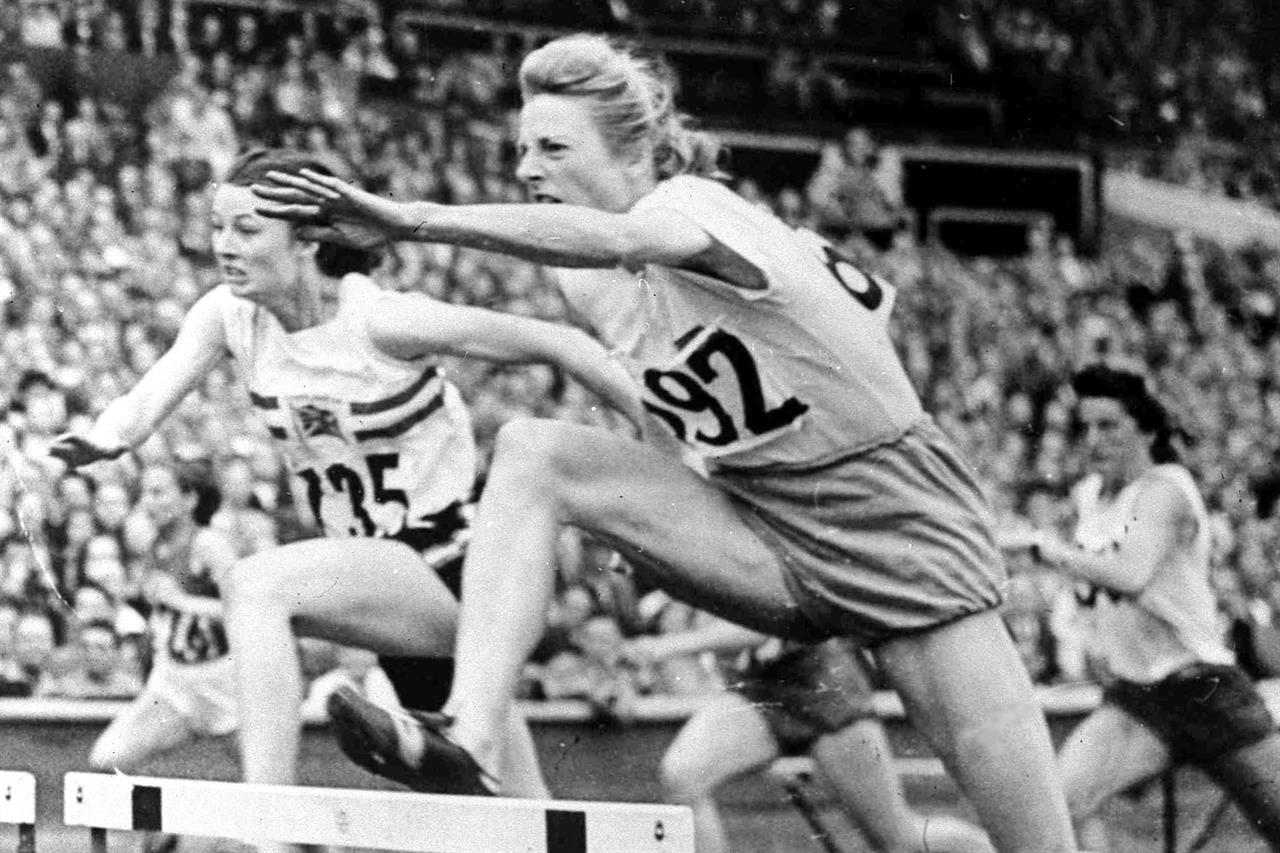

The Olympics were formally cancelled on, a week before the Netherlands was invaded by German troops. However, the outbreak of World War II put a stop to the preparations. Many observers, and Koen herself, expected her to do well at the upcoming Olympics, which were to be held in Helsinki in July 1940. At the European Championships in Vienna, she won the bronze in both the 100 and 200 m, which were both won by Stanisława Walasiewicz. In 1938, she ran her first world record (11.0 seconds in the 100 yards), and she also won her first international medals. In the high jump, she took sixth place (shared with two other jumpers) while the Dutch relay team came in fifth in the final (the sixth team in the final, Germany, was disqualified). In Berlin she participated in the high jump and the 4 × 100 m relay, both held on the same day. The following year, only eighteen years old, she was nominated for the 1936 Olympic team.


Fanny Koen soon made the Dutch team, although as a sprinter, not a middle distance runner. Her first competition was a disappointment, but in her third race, she set a national record in the 800 m. Her first appearance in the sport was in 1935. A swimming coach advised her to do track because there were already several top swimmers in the Netherlands at that time (such as Rie Mastenbroek), and she would have a better chance to qualify for the Olympics in a track event. It soon became clear she was a sports talent, but she could not decide which sport to pick. As a teenager, she enjoyed tennis, swimming, gymnastics, ice skating, and running. In 1999, she was voted "Female Athlete of the Century" by the International Association of Athletics Federations (IAAF).īlankers-Koen was born Francina Elsje Koen in Lage Vuursche (near Baarn) to Arnoldus and Helena Koen. She retired from athletics in 1955, after which she became leader of the Dutch female track and field team. Although international competition was hampered by World War II, Blankers-Koen set several world records during that period, in events as diverse as the long jump, the high jump, and sprint and hurdling events.Īpart from her four Olympic titles, she won five European titles and 58 Dutch championships, and set or tied 12 world records. Having started competing in athletics in 1935, she took part in the 1936 Summer Olympics a year later. Her background and performances earned her the nickname "the Flying Housewife." She accomplished this as a mother of two, during a time when many disregarded women's athletics. Related subjects: Sports and games people Olympic medal recordįanny Blankers-Koen ( 26 April 1918– 25 January 2004) was a Dutch athlete, best known for winning four gold medals at the 1948 Summer Olympics in London. Yet in a matter of days, Blankers-Koen romped to the 100 meters gold, then the 80m hurdles, the 200m by a runaway margin and finally anchored the Dutch to gold in the 4x100m relay, taking the baton in fourth place and powering her long legs through the field.2007 Schools Wikipedia Selection.
#Fanny blankers koen tv#
“I hoped to get into a final, that would have been a highlight for me,” she told a Dutch TV documentary decades later.
#Fanny blankers koen plus#
She might have won more at the Games in London but was restricted to just three individual events plus a relay, even though she had held the world record, at one time or another, in six different disciplines.īlankers-Koen went to London as a 30-year-old mother of two and her expectations were not much higher than to relive the excitement of her previous Olympic experience in Berlin in 1936, when she was a bright-eyed teenager. Blankers-Koen and Carl Lewis were elected "Athlete of Century" by the IAF (International Athletic Foundation). FILE PHOTO: Born on April 26, 1918: Fanny Blankers-Koen, Dutch Athlete Dutch 1948 Olympic Champion Fanny Blankers-Koen (L) holds up her trophy as she poses with US champion Carl Lewis after they received their "Athlete of the Century" awards during the World Athletic Federation gala in Monte Carlo November 21.


 0 kommentar(er)
0 kommentar(er)
